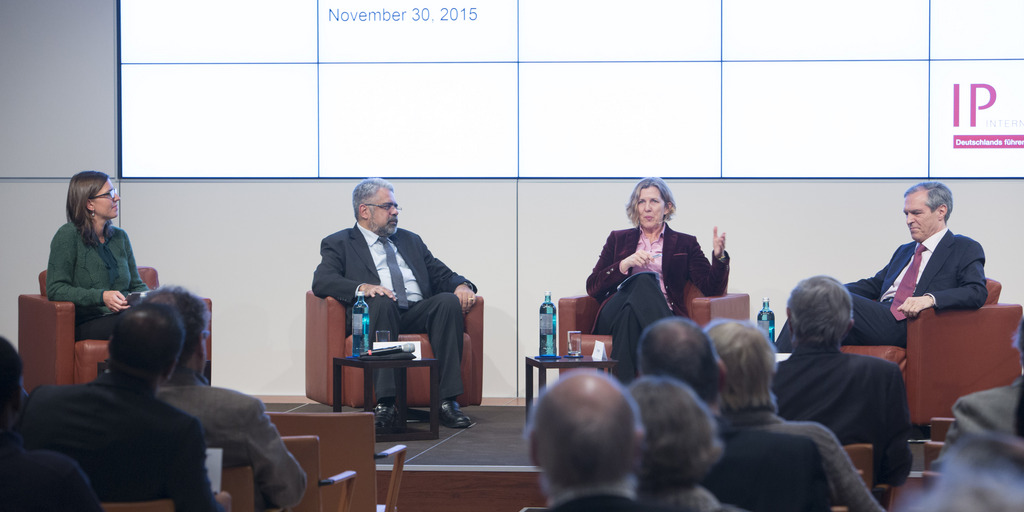Promising radical economic reforms and a corruption free government, Narendra Modi captured the imagination of millions of Indians who had had enough of the scandal ridden congress led UPA government and came to power on a historical mandate. A year and a half later, India has implemented a few reforms, but the promised radical changes are yet to see the light of day.
Limited ambition
Narendra Modi’s historical mandate raised expectations not only in India but also abroad. The Economist even went on to say that Narendra Modi’s amazing victory gives India its best chance ever of prosperity. Modi’s convincing win gave him the opportunity to appoint a cabinet without coalition pressures and undertake radical and painful economic reforms, but the results were underwhelming on both counts. Mr Steiner expressed his disappointment at the lack of boldness with which Modi appointed his cabinet and his initial reform plans. To its credit, the Modi government enacted reforms to enable transparent allocation of natural resources, relaxed norms for foreign direct investments in various sectors and has tweaked the revenue sharing structure with the states to give them more autonomy in designing and implementing their economic and social security programmes. But there has been a centralisation of the powers in the PMO (Prime Minister’s Office) which controls the ministries headed by weak ministers through an army of bureaucrats hindering any significant departure from the economic policies of the previous government.
Structural limits
The BJP’s lack of majority in the upper house of the Indian parliament coupled with complete blockade by the opposition ensured that sweeping changes to the maze of archaic laws have not yet taken place. The members of the upper house are nominated by the states and it would take years for a change in its composition to happen. Dr Destradi emphasized on the other structural bottlenecks like the federal structure of India where the states have a lot of autonomy in deciding their local laws and policies. Modi has tried to bypass the deadlock at the centre by getting the states where there the BJP is in power to undertake reforms at the state level. This has so far achieved limited results as the number of BJP ruled states are insignificant. A bureaucracy with a paternalistic mind-set amplifies the problem further.
Focus areas
Mr Srinivasan stressed the need to develop Innovation and skill building which are crucial for India to achieve inclusive economic growth and to absorb the one million youth which enter the workforce every month. The lean innovation which India is a hub for, is something which is not only empowering the low income sections of the Indian society but also relevant for German companies which can tap this huge market potential. Implementing gender equality is a big challenge in India despite fair representation of women in business and political organisations. Many of the top banks in India are run by women and there are directives which penalise corporations which do not have enough women as their board members. There are also laws which ensure that women are represented in local elected bodies through a quota of up to 50%. But education of the girl child is still lagging despite governmental initiatives to promote it in rural areas.
Regional influence
China has been dominating the economic story in Asia in the last decades. India’s democratic and federal structure could not match China in terms of growth rates, but the stability and sustainability of the economic path is better ensured through institutional credibility and democratic process. India has a look east policy which basically focusses on good relationship with the neighbours of China as a counterweight to its massive economic and geopolitical influence. India has also reached out to Africa where it competes with China for raw materials and as a market for its goods. India is quite aware of the competition and its limited resources, but the attendance by the heads of state of all African countries in the recently hosted India Africa summit point to the success of its efforts.
Summary
The panel which was moderated by Dr Silke Tempel agreed that there have been steps taken in the right direction, but internal and structural roadblocks have to be tackled before the reforms can be called ground-breaking. After the loss in Delhi and Bihar elections, Modi must find ways through the Indian democratic system to push through reforms if he wants to take India into the 21st century.
Watch the interviews with Michael Steiner and Raghavan Srinivasan here:


![[Translate to English:] 2 Menschen sitzen vor einem Laptop und verfolgen die Zoom Time](/fileadmin/files/_processed_/9/7/csm_602110019AdobeStock_344907182_KONZERN_ST-IB.jpeg_Original_95431_BEARB_f90039ccad.jpg)

![[Translate to English:] Drei Personen in einer Arbeitsgruppe vor einem Laptop in einer Bibliothek.](/fileadmin/files/_processed_/7/0/csm_1753899692_DSC6677_1240x600px_1519b3fd9b.jpg)


